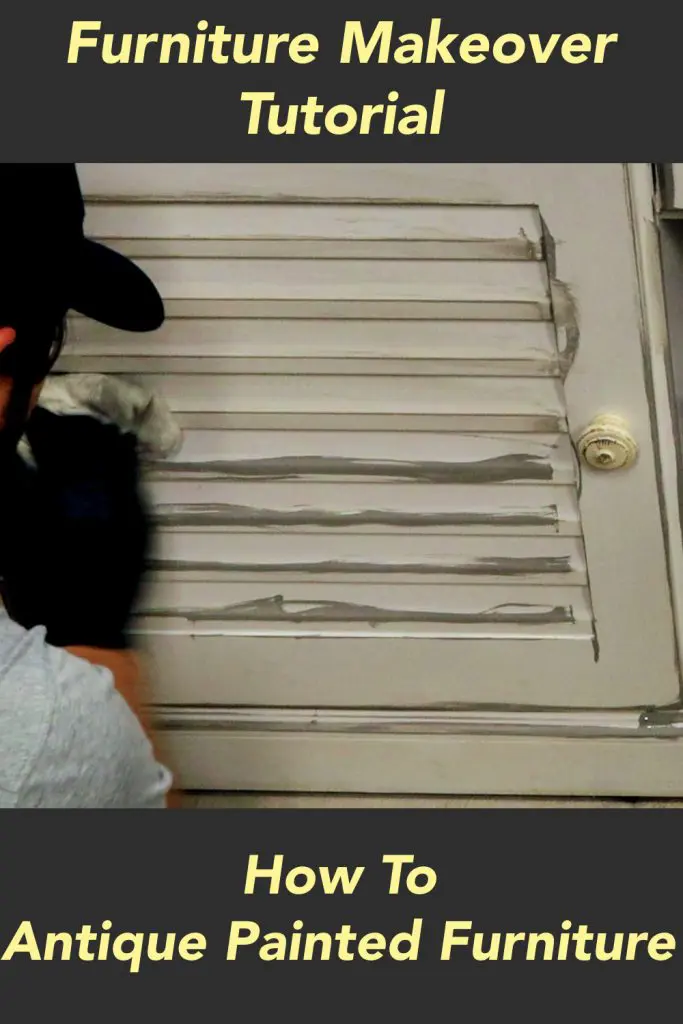In this DIY tutorial, I show you how to antique furniture using paint and stain for an aged look on a vintage painted desk. This easy technique creates an aged look on any piece of furniture.
In fact, I often use this easy technique to flip a furniture piece for profit.
Furthermore, most of the vintage furniture in an antique store are distressed with a similar technique.
Be sure to grab my FREE chalk paint recipe at the end of this article.
So, let’s get started with a list of things I used for this project.
Tools and Supplies
Complete Distressing Furniture GuidePaint (White Satin)
Stain (Sun Bleached)
Paint Brush
Stain Brush
Orbital Sander
Alternate Sander
HEPA Vacuum
120 Grit Sandpaper
Nitrile Gloves
Foam Brushes
Rags
Polycrylic Liquid Finish
Polycrylic Spray
Antiquing Furniture Video Tutorial
There are several things which are difficult to fully explain with words and images, so be sure to watch the video tutorial below.
How To Antique Furniture Overview
Consider downloading my comprehensive guide for distressing furniture.
This guide includes:
- 23 Page PDF Guide
- 3 Video Tutorials
- Photo Illustrations for All Steps
- Material/Tool List
- Table of Contents for Easy Navigation
- FREE Chalk Paint Recipe

This antiquing furniture technique works on bare wood furniture or already painted furniture.
The prep work is key to achieve a nice antique finish.
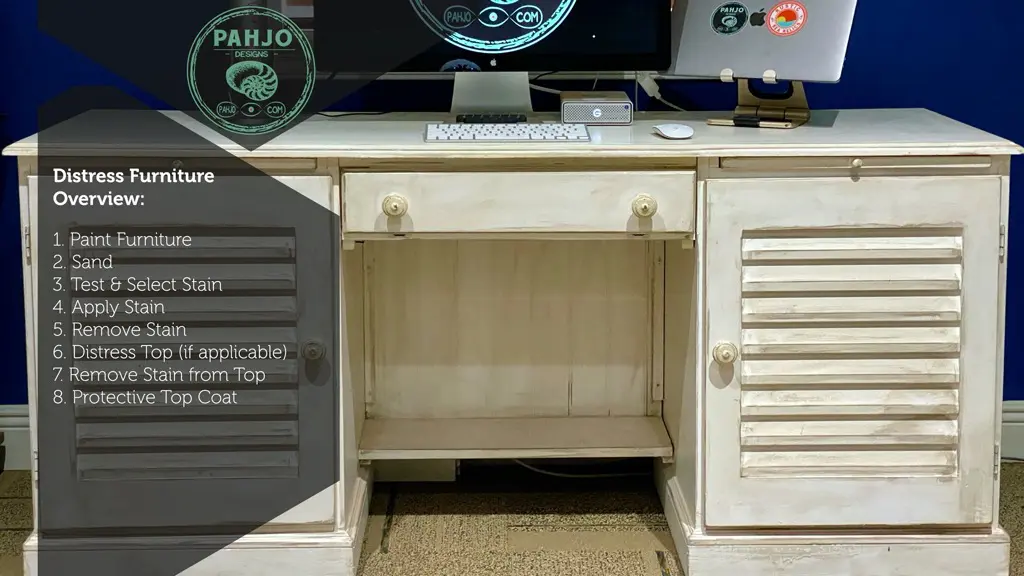
Antiquing Furniture Tips
Before you get started, please review the following antiquing furniture paint and stain tips.
Paint and Stain Color
First, the base color paint should contrast with the stain color.
Remember, contrasting color paint and stain work best.
Dark paint works best with light stain and light paint works best with dark stain.
Dark paint works best with light stain and light paint works best with dark stain.
For example, I used dark stain over white antique furniture paint in this antiquing furniture project.
Latex Paint or Chalk Paint
The type of paint you use to create an antique finish on furniture matters.
You should choose a latex paint with a satin (eggshell) or semi-gloss sheen.
Do not use spray paint on your furniture.
Keep in mind, milk paint, chalk paint, and most acrylic paints leave a matte/flat sheen.
The stain absorbs into chalk paint too quickly, which lessens your ability to control the wood stain over white paint look.
Stain Over Paint or Paint Over Stain
The 2 most common antiquing furniture techniques are:
- Stain Over Paint
- Paint Over Stain
Although both techniques are used for antiquing wood furniture, they produce very different looks.
Stain Over Paint for Antique Look
The stain over paint technique involves applying stain over paint and removing the excess stain.
It produces a natural aged look on painted wood furniture.
As previously mentioned, satin or semigloss latex paint works best when applying stain over paint.
Paint with a high sheen allows more control over the antiqued furniture look.
Paint over Stain Distressed Look
The paint over stain technique involves staining bare wood furniture, applying paint, and removing a portion of the paint.
It produces a very distressed look.
Furthermore, this technique is commonly used when antiquing with chalk paint or flat latex paint.
White Paint for Wood Furniture
For the first step, paint the entire piece of furniture with 2 thin coats of white paint.
If you are painting bare wood furniture, be sure to paint in the same direction as the wood grain.
Allow the first coat of paint to dry for 12 to 24 hours.
To get the best results, apply a second coat of paint.
Keep in mind, don’t use too much paint.
Instead, use multiple layers of paint to get a smooth, uniform painted finish for the next step.
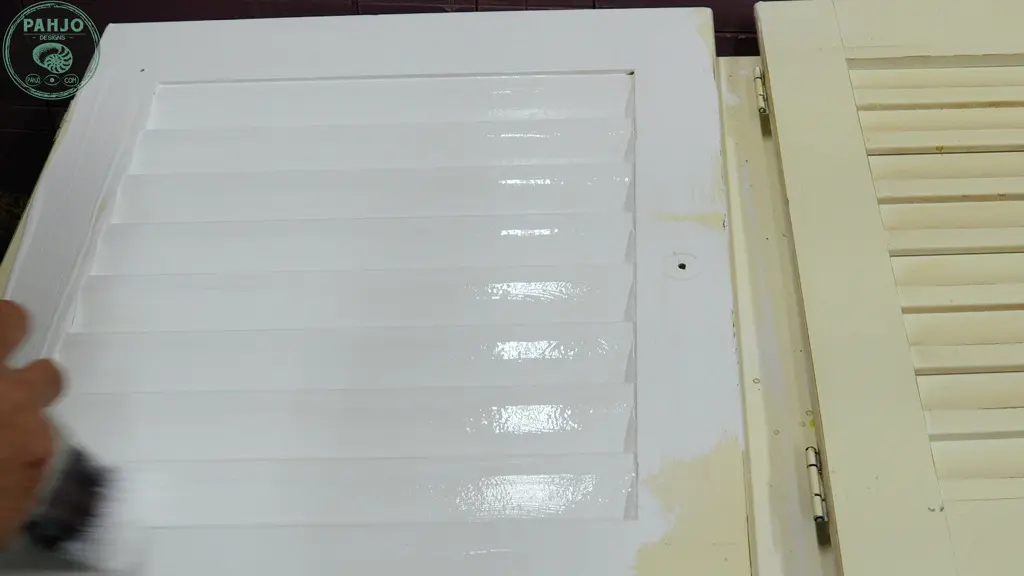
Distress Painted Furniture with Sandpaper
Use an orbital sander or sanding block with fine sandpaper (120 grit or higher) to sand the corners and sharp edges.
Do not use steel wool as it leaves residue behind.
Essentially, the fine-grit sandpaper should be just enough to remove the paint finish and reveal the solid wood.
Move to a medium-grit sandpaper (80 grit or 100 grit) only if needed.
For a timeworn look, sand the parts of the furniture prone to natural wear and tear.
Obviously, these areas get touched and handled the most.
The stain penetrates wood surfaces better than a paint finish.
In turn, the finished piece will appear as though it aged naturally.
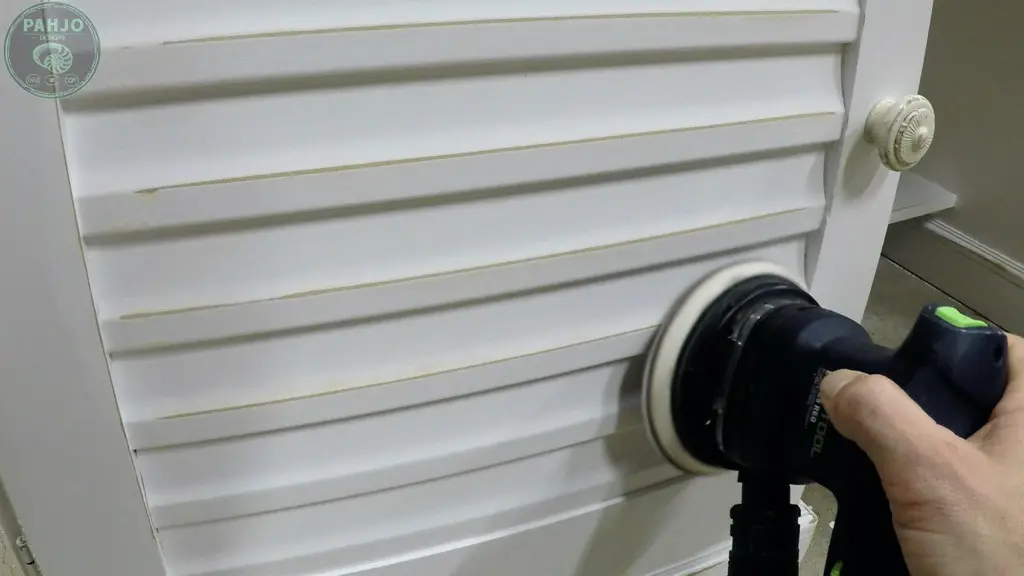
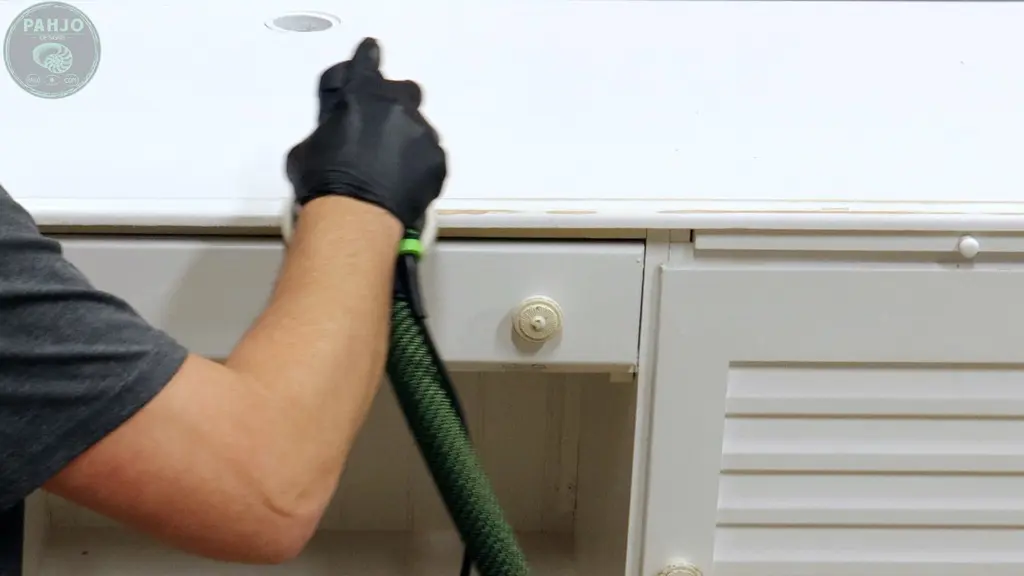
Wood Veneer Warning
Most new furniture is not made with solid wood.
Rather, a thin layer of wood veneer covers cheaper material such as MDF.
You can easily sand through the wood veneer and expose the material beneath.
This may not be noticeable if you use a dark stain.
However, a lighter stain will not mask the cheap material.
Just something to keep in mind.
Test Stain Over Paint Technique
Use a scrap piece of wood and paint it the same color as the furniture.
Next, separate each section with a piece of painter’s tape.
Then, apply a little bit of stain with a clean rag.
Use a different color stain in each section.
Decide which aged look works best for you.
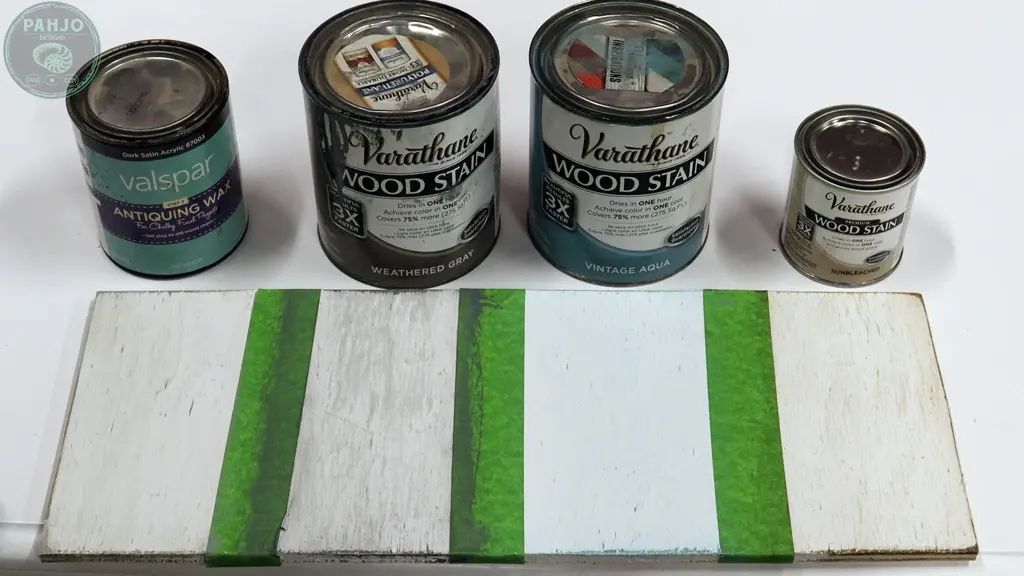
Apply Stain Over Paint Finish
First, apply wood stain over the exposed wood with a foam brush, dry rag, or soft cloth.
Remember, work in small sections and a little bit of stain goes a long way.
Keep in mind, you don’t need to be overly cautious when antiquing furniture with wood stain.
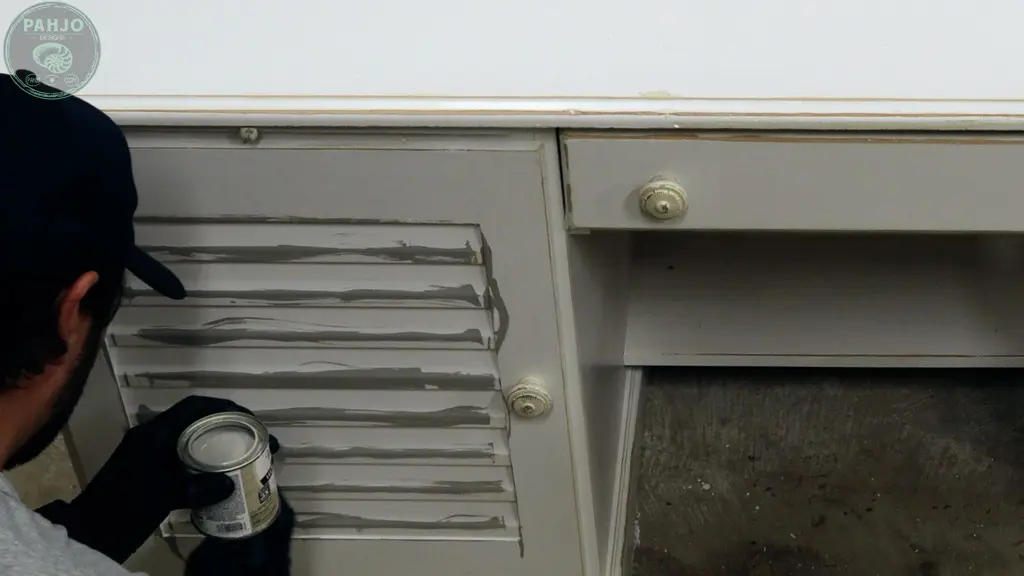
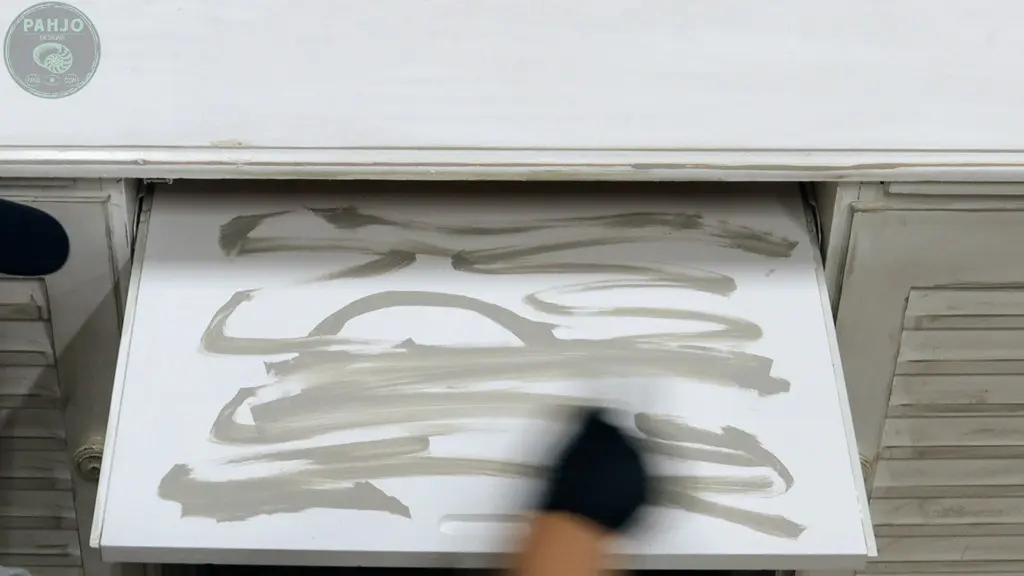
Wipe and Remove Stain
Removing stain properly is one of the most important things to do when distressing pieces of furniture.
First, use a dry rag or paper towel and wipe the area.
As you wipe, the stain will spread to surrounding areas.
Obviously, the stain darkens the white paint and produces a worn, weathered look.
As mentioned, work in small sections.
This prevents the stain from drying making it difficult to wipe and remove.
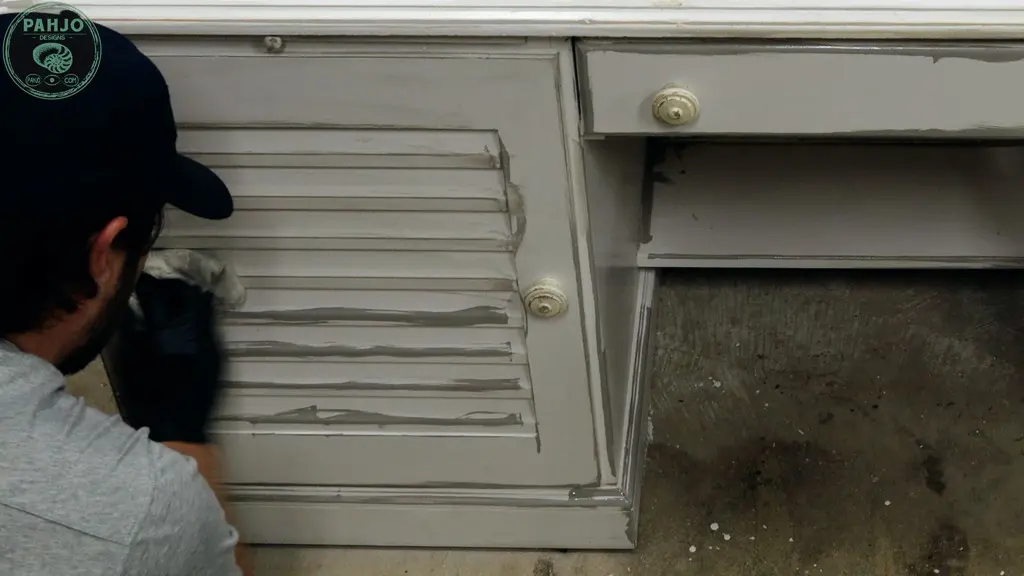
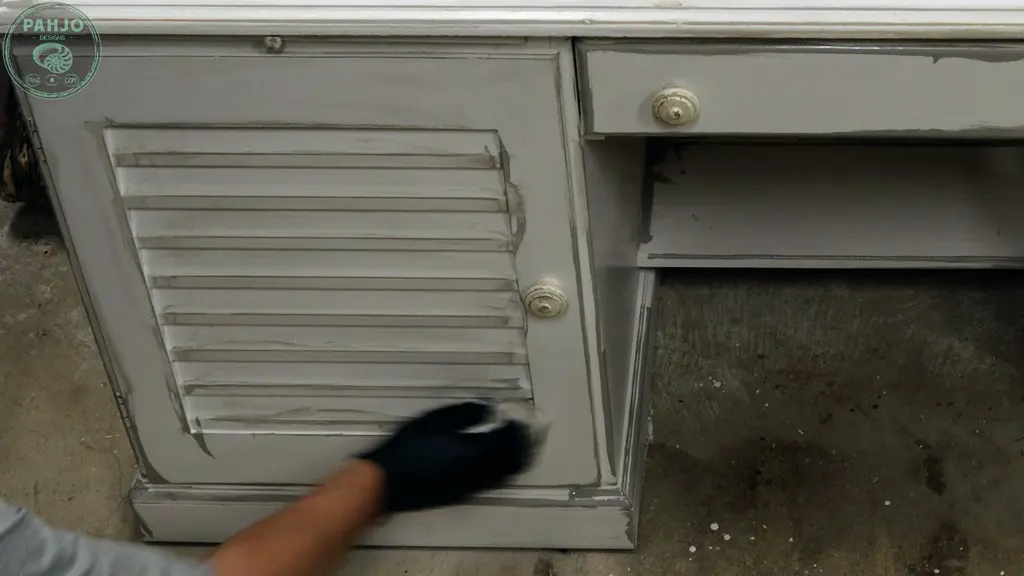
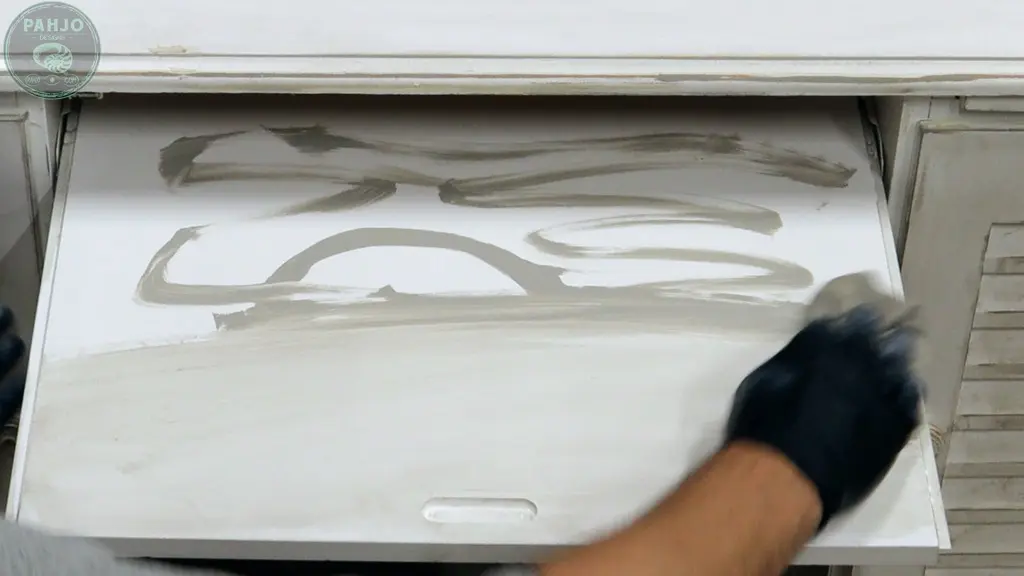
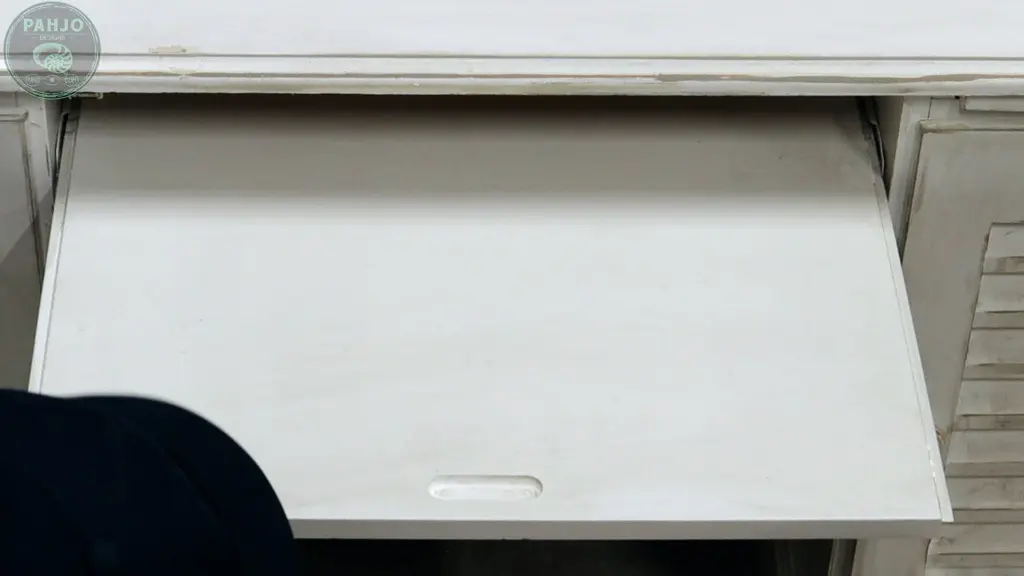
Distressing Furniture Tip
The main advantage to this distressing technique is control and forgiveness.
Ultimately, the paint sheen (satin, semigloss, or gloss) prevents the stain from fully soaking into the paint.
This allows you to wipe and remove most of the stain.
Remove more stain for a subtle antique finish.
Or, remove less stain for a more distressed finish.
If you apply too much stain, use a damp wet rag to remove it before it soaks into the paint.
Conversely, add more stain to an area if you didn’t apply enough.
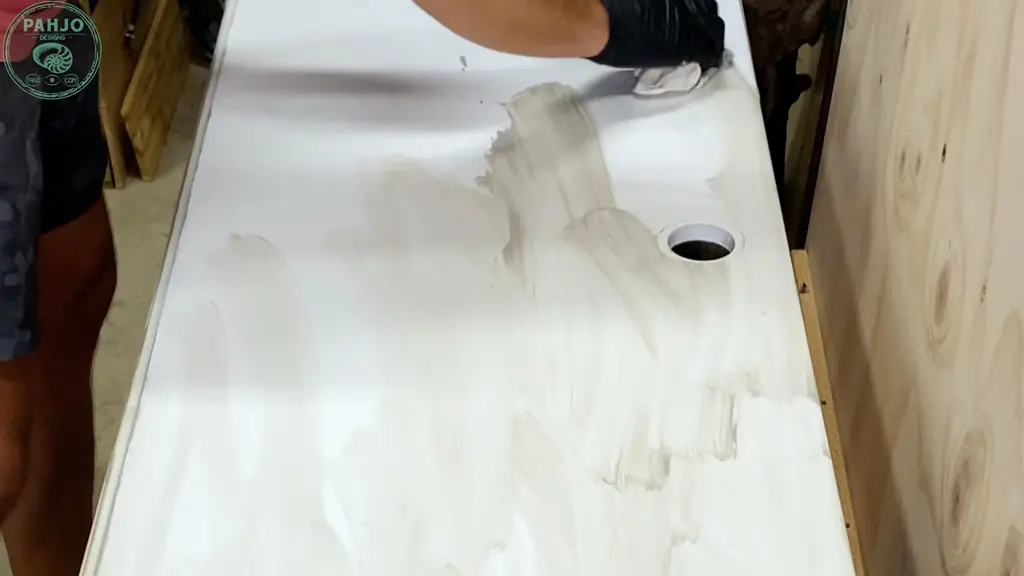
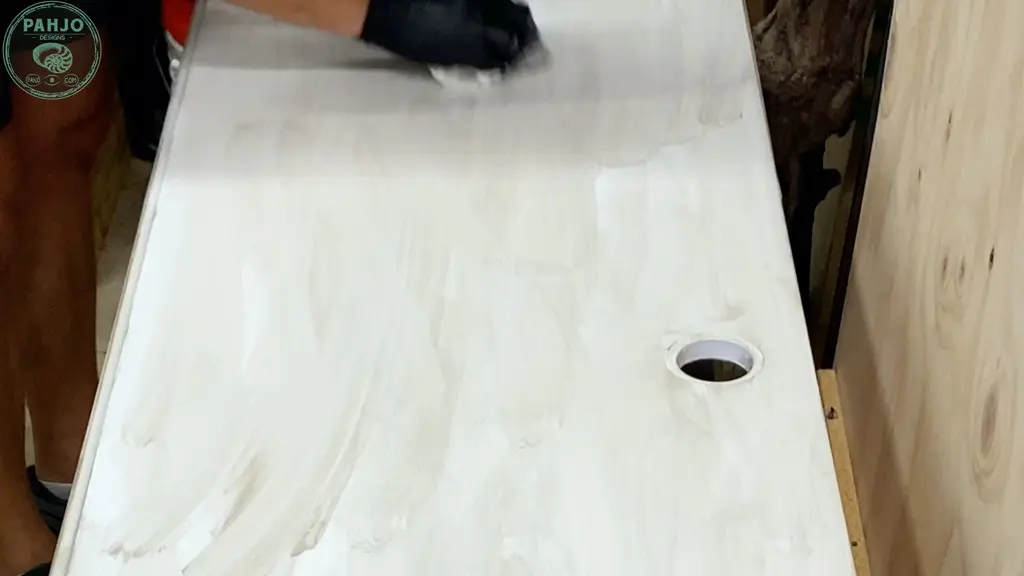
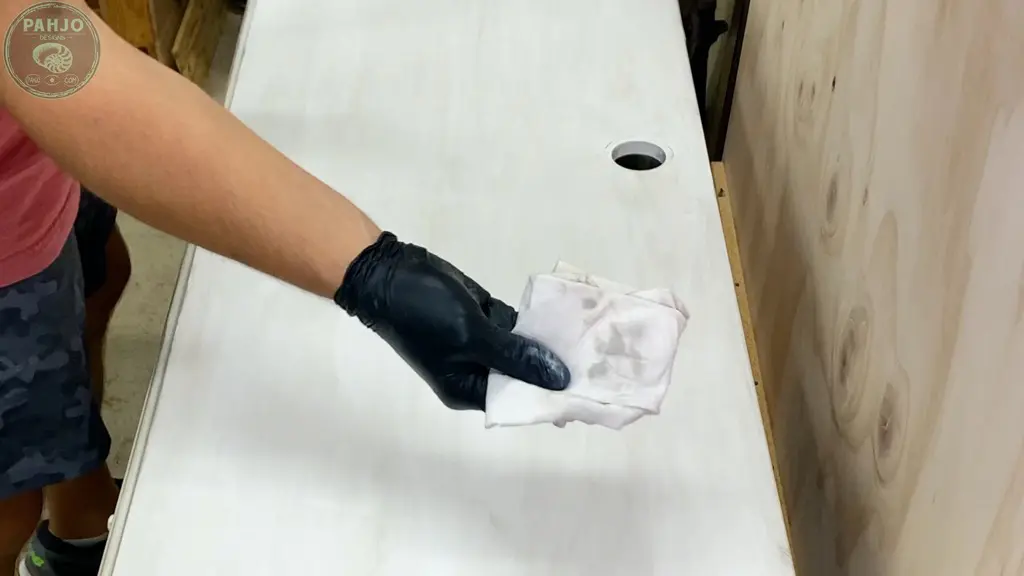
How To Seal Distressed Furniture
To seal distressed furniture, use a coat of clear wax or apply a protective coating such as Polycrylic.
Follow the manufacturer’s instructions regardless of which option you choose.
For this project, I applied 3 coats to protect the distressed furniture from normal wear and tear.
Keep in mind, apply multiple thin coats to build up the finish.
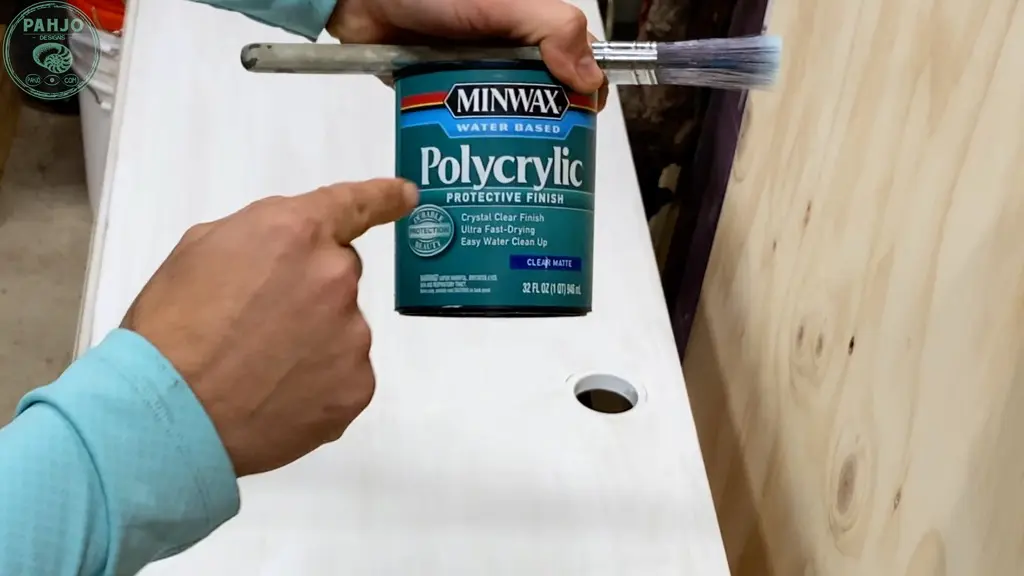
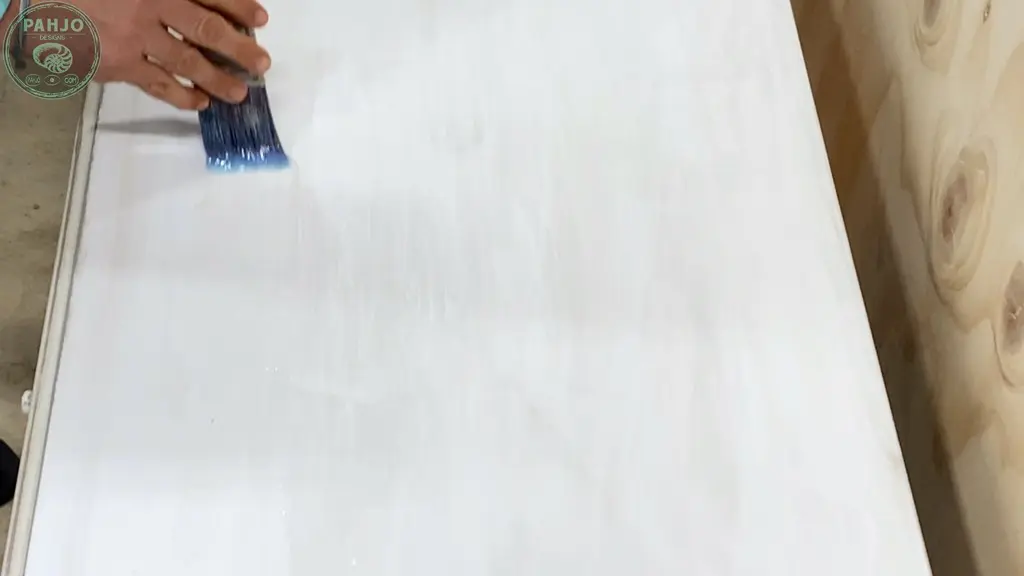
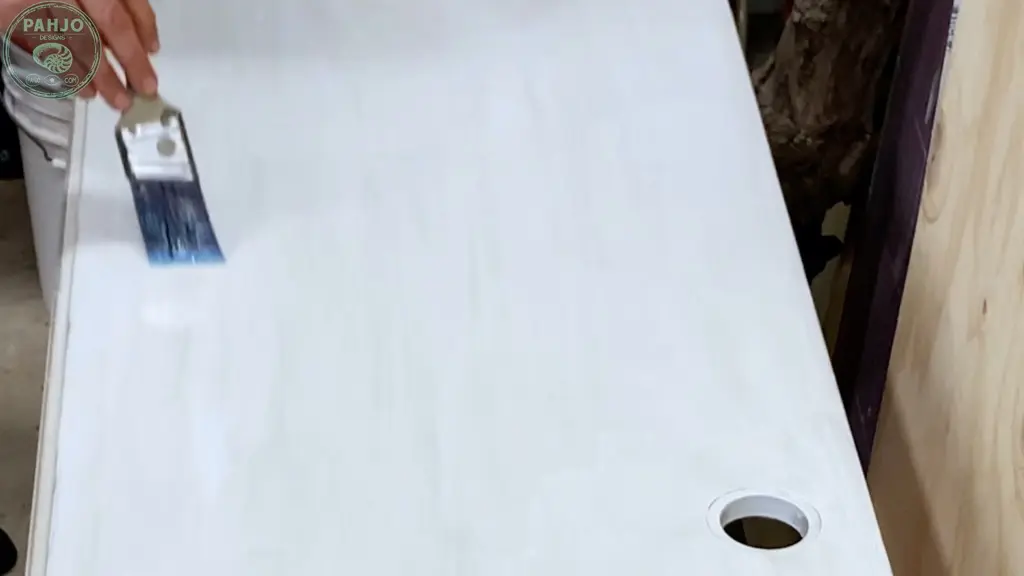
Quick Tip: When sealing distressed furniture, use a spray can of the same finish to cover those hard-to-reach places.
Quick Tip: When sealing distressed furniture, use a spray can of the same finish to cover those hard-to-reach places.
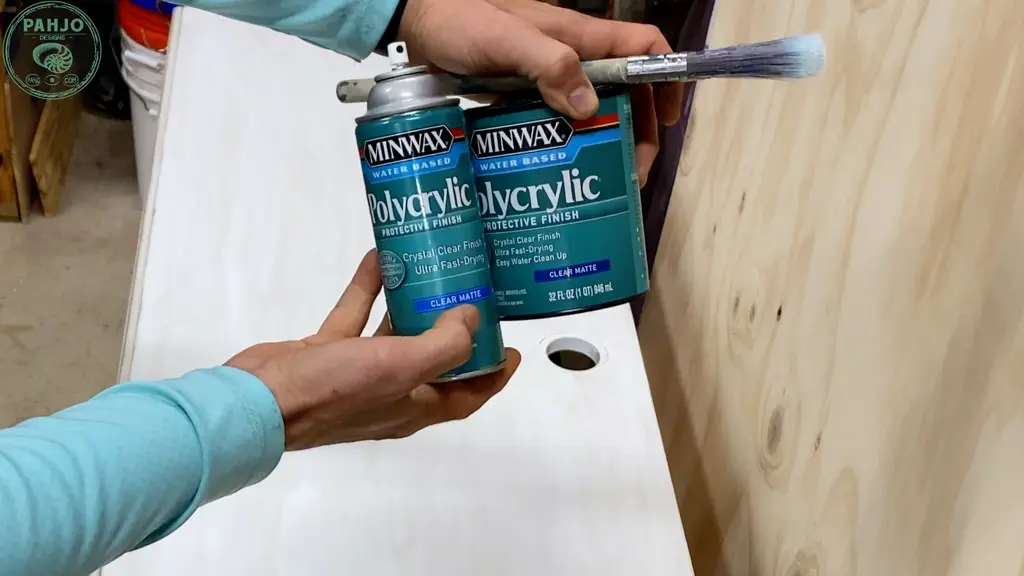
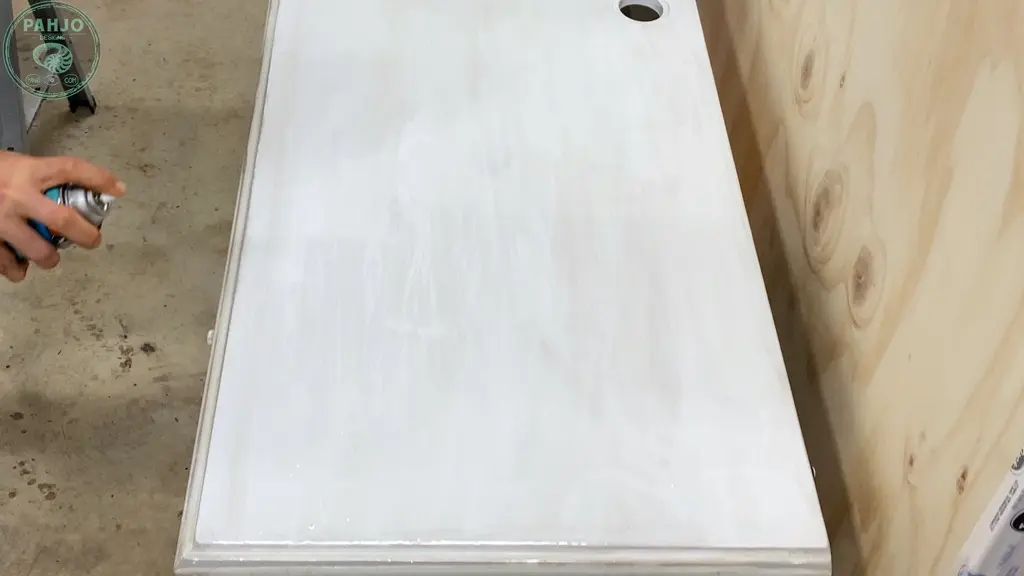
Flipping Furniture for Profit
Once you learn how to antique furniture using paint and stain for an aged look, you can start a side hustle flipping furniture.
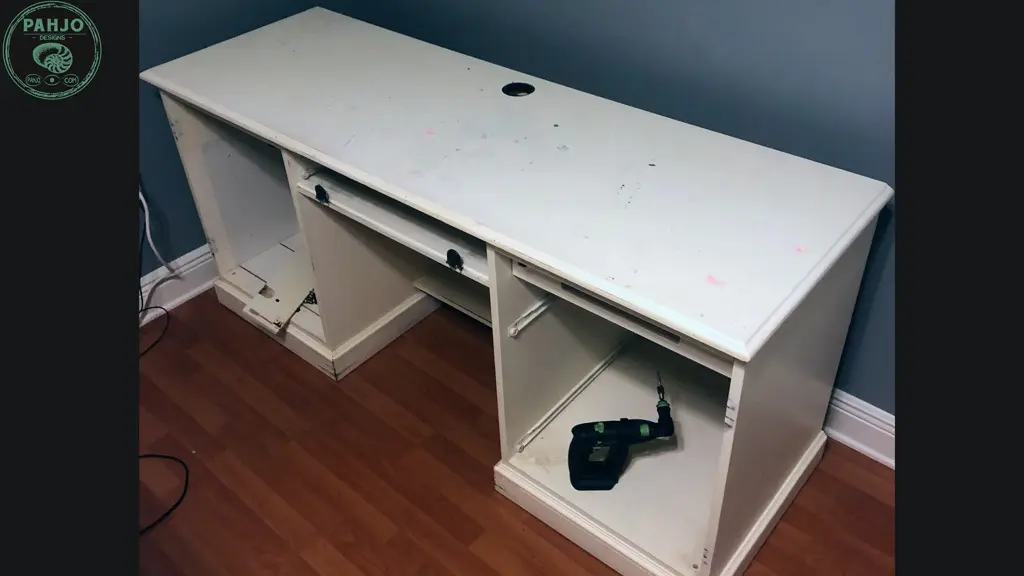
Where to Find Furniture to Flip?
You can find used furniture styles in good condition in many places.
First, look around your home for vintage things to paint.
Some of the best places to find various furniture styles in good condition are:
- FB market place
- Garage Sales
- Estate Sales
- Thrift stores
Furniture Flip Profit
I purchased this desk for $75.00 on craigslist for my daughter’s room.
After I finished this furniture makeover project, a friend offered to purchase the finished piece for $500.
Not too bad after a few hours of my time and $25.00 in material.
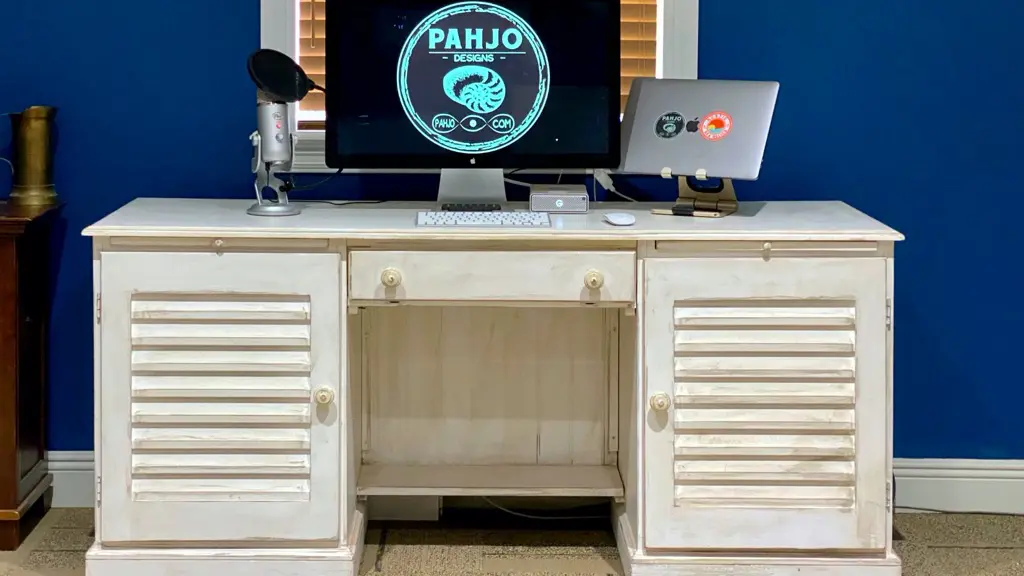
Conclusion
I hope you learned how to antique furniture using paint and stain.
Use this technique on a coffee table, antique chairs, or old wood furniture.
Related Posts
- 2 Easy Distressing Techniques for Painted Furniture
- Repurposed Dresser to Mudroom Hutch
- How to Make a Bench from a Baby Bed
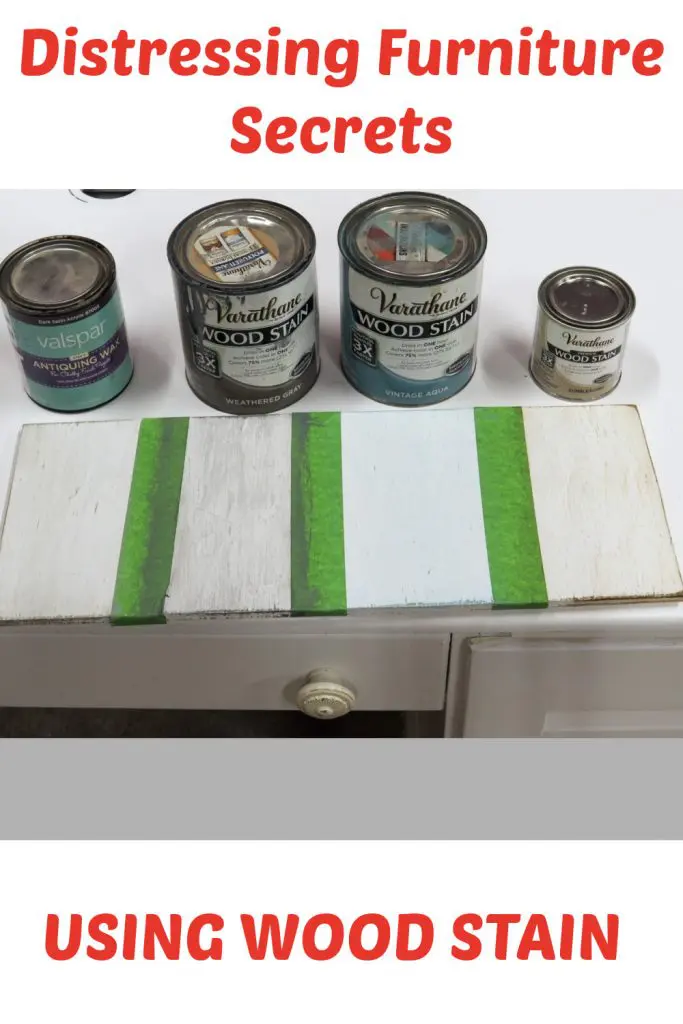
Frequently Asked Questions
Can you distress already painted furniture?
If you want to distress or antique already painted furniture, you can certainly do so. Just make sure the existing paint and stain produce the distressed look you want.
Latex paint is the best paint to use for distressing furniture with stain. Furthermore, satin, eggshell, and semi-gloss are the best sheens to use to control the amount of distressing.
To make white paint look distressed, simply add a dark wood stain to the paint with a rag, allow it to sit for 10 minutes, and then wipe it off with a rag. The stain penetrates the white paint leaving a distressed and weathered look.
To seal distressed painted furniture, use 3 coats of polycrylic.
To create a distressed aged look, apply stain over paint and wipe off the excess stain. Be sure to use latex paint with a satin sheen.
